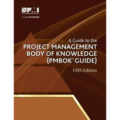
In the grand tapestry of human endeavor, project management has always been the thread that weaves chaos into order, the alchemy that turns plans into reality.
As we stand at the threshold of 2040, let’s embark on a speculative voyage to explore how this ancient art has evolved in the face of technological change, societal shifts, and the unquenchable human desire to achieve more with less.
The Rise of AI and Automation
By 2040, the project management profession has been profoundly transformed by Artificial Intelligence (AI) and automation. What once took armies of humans to manage, from risk assessment to resource allocation, now largely falls under the purview of sophisticated AI systems.
These digital project managers, equipped with predictive analytics and machine learning, can forecast project outcomes with startling accuracy, identify risks before they become issues, and optimize workflows in real-time.
However, instead of replacing human project managers, AI has become their most reliable ally. Humans now focus on strategic oversight, creativity, and interpersonal dynamics, areas where AI still stumbles due to the nuances of human behavior and ethical decision-making.
Remote Work Revolution
 The work-from-anywhere paradigm has solidified by 2040. The project management profession has adapted to a world where office spaces are relics of the past, and virtual collaboration tools are commonplace. Project managers have become adept at leading teams spread across continents, leveraging virtual reality for meetings, holographic presentations for pitches, and blockchain for secure, transparent contract management.
The work-from-anywhere paradigm has solidified by 2040. The project management profession has adapted to a world where office spaces are relics of the past, and virtual collaboration tools are commonplace. Project managers have become adept at leading teams spread across continents, leveraging virtual reality for meetings, holographic presentations for pitches, and blockchain for secure, transparent contract management.
This shift has democratized talent acquisition, allowing project managers to tap into a global pool of experts, ensuring that the right person for the job is never too far away, just a virtual handshake apart.
Agile Has Evolved
Agile methodology, once the revolutionary approach to project management, has evolved significantly. By 2040, Agile is not just a methodology but a philosophy ingrained in every project manager’s ethos.
It has morphed into something more flexible, adaptable to various industries beyond IT, like construction, healthcare, and even governance. “Adaptive Management” is the term du jour, where projects are dynamic ecosystems, continuously adjusting to new information, stakeholder needs, and environmental changes. This evolution has made projects more resilient, with an emphasis on iterative progress and stakeholder engagement at every stage.
Education and Certification
The path to becoming a project manager has seen a revolution. Traditional education has largely been supplemented or replaced by experiential learning and micro-credentials. Project managers in 2040 often hold a series of specialized certifications, not just in project management but in areas like AI ethics, quantum computing management, or cross-cultural team leadership. Continuous learning is baked into the profession’s culture, with virtual reality simulations used for training, providing hands-on experience in managing complex projects without real-world consequences.
The Human Element
 Despite technological advances, the human element remains the heart of project management. Emotional intelligence has become even more critical, with project managers trained in psychology to better understand and motivate their teams. The role of a project manager has expanded to include being a coach, a mentor, and sometimes a therapist, ensuring team cohesion in a world where human interaction might be mediated by screens or avatars.
Despite technological advances, the human element remains the heart of project management. Emotional intelligence has become even more critical, with project managers trained in psychology to better understand and motivate their teams. The role of a project manager has expanded to include being a coach, a mentor, and sometimes a therapist, ensuring team cohesion in a world where human interaction might be mediated by screens or avatars.
Ethics and Responsibility
With greater power comes greater responsibility. Project managers in 2040 are not just planners but stewards of ethical practices. They are responsible for ensuring projects do not just succeed in terms of deliverables but also in terms of ethical compliance. This includes data ethics, especially with AI’s involvement, ensuring transparency, and managing the moral implications of projects, particularly in sensitive sectors like biotech, AI, or space colonization.
The Gig Economy’s Impact
The gig economy has fully integrated into project management. Projects are often staffed by gig workers for specific phases, reducing overheads and increasing flexibility. This has led to a new breed of project management roles focused on talent orchestration, where managing a fluctuating workforce becomes an art form, ensuring continuity and quality amidst constant change.
Interdisciplinary Teams
Projects in 2040 are rarely confined to one field. Interdisciplinary teams are the norm, requiring project managers to be conversant in multiple domains. This cross-pollination of knowledge has led to innovations at intersections like biotech and AI, making project managers the linchpins in these collaborative efforts.
Conclusion: The Future is Bright
The project management profession in 2040 is vibrant, challenging, and more crucial than ever. It’s a field where technology serves as both a tool and a partner, where global collaboration is standard, and where the human touch is as valuable as ever. Project managers are not just managing projects; they’re shaping futures, navigating the delicate balance between innovation and ethics, and leading humanity into an era where projects are not just completed; they are completed well, for the benefit of all.
Here’s to a future where project management continues to be the guiding light through the dark matter of complexity, always aiming, as any good project manager would, for the stars.













Leave a Reply